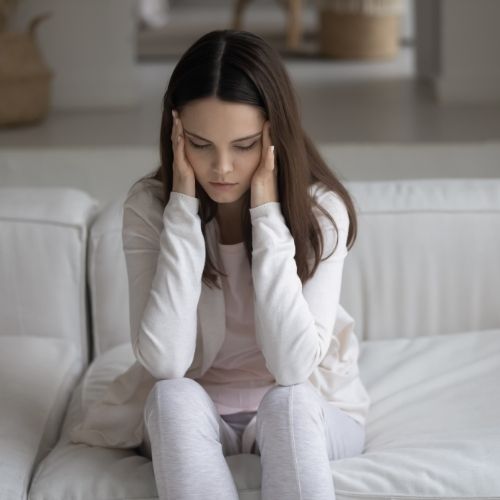The age group of tweens and teens is extremely difficult. Physical changes, hormonal challenges, peer pressure, and emotional disruption can all contribute to the confusion for both the adolescent and parents.
What Causes Anxiety in Teens?
Professionals don’t thoroughly understand the combination of genetics, life events, brain activities, and other factors, but they do recognize several factors that can contribute to the anxiety.
- Competition and Success – Many young adults feel the pressure to succeed in school, athletics, and socially. This can lead to a feeling of being overwhelmed and the inability to succeed at anything.
- Threats – Watching the nightly news and listening to podcasts, everyone is acutely aware of the violence around us. Even in public places, there are shootings. Schools drill in lockdowns. Ads and speeches abound in discord all the way to hatred.
- Social Media – Bullying has always been around. Today it is even easier to be anonymous in intimidation. Combined with low self esteem, educators, parents, mental health professionals, and others combat the situation daily. However, when a young person finds themself in the middle of a campaign, it can all be too much.
Add to this the fact that some kids just are predisposed to be over reactive to what would seem normal experiences. They are simply prone to excessive worry as part of their emotional makeup.
All of this can have serious consequences. The inability to clearly focus on school work can have a lifelong impact on learning abilities and confidence. Physical problems can emerge including headaches, digestive issues, and others than can promote more severe issues as time goes along. Sadly, much of this can lead to depression, substance abuse, self harming and even suicide.
Signs of Anxiety in Teens
As an adult, it is important to recognize some of the signs of anxiety.
- Recurring fears, especially over routine activities
- Avoiding activities
- Falling grades and truancy
- Sleep disorders including insomnia and nightmares
Even if you don’t notice any of these symptoms, have open discussions about potential stressors and coping mechanisms. Analyze your own expectations and give the child time for relaxation. Limit social media and electronic games.
During physician visits, even for routine appointments, have the doctor ask about physical complaints as well as activities at home, school, and socially. Physicians have access to screening tools that will help identify critical elements and help seek treatment early.
Depression and other mental health conditions are very treatable with talk therapy, medication, and non-traditional treatments like yoga, meditation, and muscle relaxation.
Since anxiety and other mental health issues can manifest themselves differently, don’t be afraid to ask open-ended questions and to see if your child needs to seek professional consultation. Some anxiety is to be expected but when it becomes too great, it can lead to serious issues. Don’t wait too long to ask for help.



